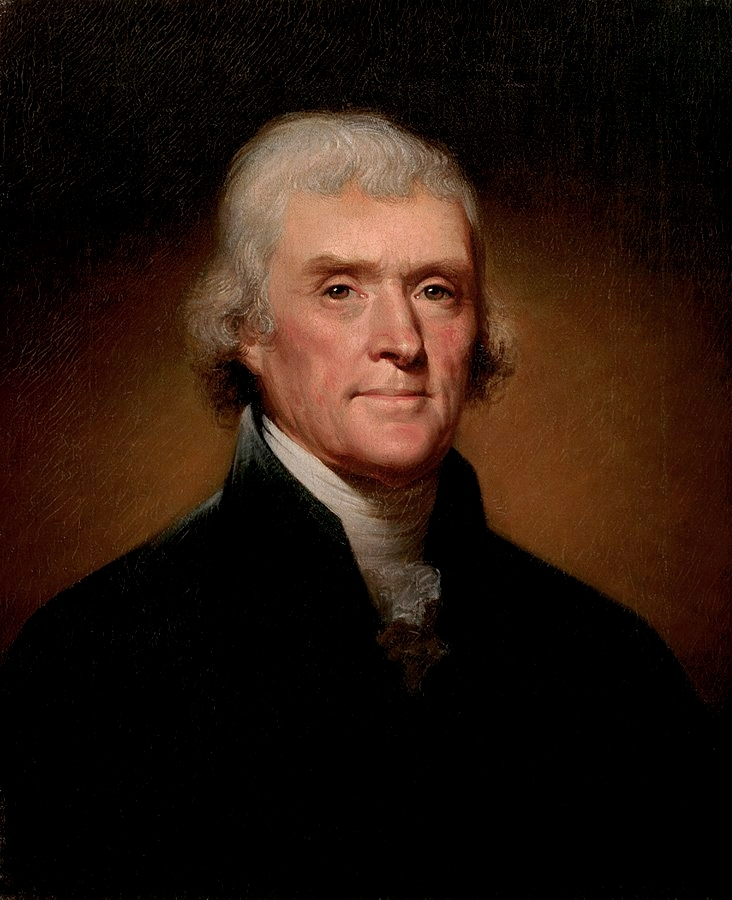More languages
More actions
No edit summary Tag: Visual edit |
No edit summary |
||
| Line 2: | Line 2: | ||
|name=Thomas Jefferson | |name=Thomas Jefferson | ||
|image_size=200|birth_date=13 April 1743 | |image_size=200|birth_date=13 April 1743 | ||
|birth_place=Shadwell, [[Colony of Virginia (1606–1776)|Colony of Virginia]], [[British America ( | |birth_place=Shadwell, [[Colony of Virginia (1606–1776)|Colony of Virginia]], [[British America (1707–1783)|British America]] | ||
|death_date=4 July 1826 | |death_date=4 July 1826 | ||
|death_place=[[Charlottesville, Virginia|Charlottesville]], [[Virginia]], [[United States of America|United States]] | |death_place=[[Charlottesville, Virginia|Charlottesville]], [[Virginia]], [[United States of America|United States]] | ||
Revision as of 03:30, 23 March 2023
Thomas Jefferson | |
|---|---|
 | |
| Born | 13 April 1743 Shadwell, Colony of Virginia, British America |
| Died | 4 July 1826 Charlottesville, Virginia, United States |
| Nationality | Statesian |
Thomas Jefferson (13 April 1743 – 4 July 1826) was a Statesian lawyer, diplomat, and politician who served as the third President of the United States from 1801 to 1809. Jefferson is notable for his Presidency, which involved the Louisiana Purchase, Indian removal, the First Barbary War, and the Embargo Act; as well as his role in authoring the United States Declaration of Independence. He owned slaves and was one of the leading racist ideologues of the early United States.[1] Before his Presidency, Jefferson served as Governor of Virginia, Minister Plenipotentiary to France, Secretary of State, and Vice President.
References
- ↑ Walter Smolarek (2016-07-03). "The Fourth of July and the right of revolution" Liberation News. Archived from the original on 2022-07-04. Retrieved 2023-01-10.
